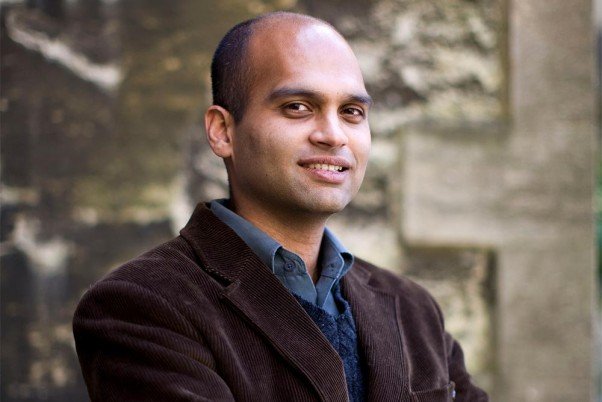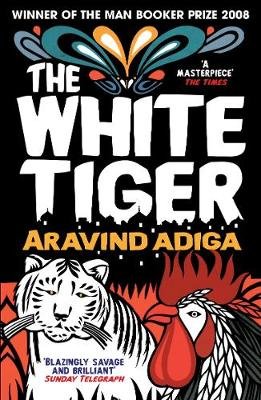Saludos a todos en esta linda comunidad. Hoy quiero contarles acerca de un curioso e interesante libro que se ha convertido en uno de mis favoritos.
TIGRE BLANCO: EL ÉXITO Y EL SALTO GENERACIONAL
El canal de noticias comunica que el presidente de China visitará India en los próximos días. Un curioso y osado emprendedor indio decide escribirle un email, del cual resulta la historia de este desconcertante libro, escrita originalmente en inglés y publicado en 2008.
La primera parte del libro se titula “La primera noche”, y abre con el email, de ese modo empieza:
Para: Su Excelencia Wen Jiabao. Oficina del primer ministro. Pekín, capital de China, país amante de la libertad.
De: El Tigre Blanco, un hombre racional y un empresario radicado en el centro mundial de la tecnología y la subcontratación, Electronics City Phase, (junto a Hosur Main Road). Bangalore, la India.
Inevitablemente tenemos que preguntarnos ¿quién es El Tigre Blanco? Pues nada menos que el protagonista de nuestra historia: Balram Halwai, quien en sucesivas ocasiones llega a sostener la tesis de que se va a producir el salto generacional de siempre y que esta vez es momento del hombre amarillo y moreno; lo que plantea más o menos así:
el futuro del mundo depende del hombre amarillo y del hombre moreno (ahora que nuestro antiguo amo, el hombre blanco, se ha echado a perder entre actos de sodomía, consumo de drogas y teléfonos móviles)
Balram nació en una villa muy pobre de la India. Su mayor anhelo es estudiar y salir de esa villa. Pero su deber es trabajar. Y mientras machaca carbón y limpia mesas, se hace más fuerte su deseo de escapar de la orilla del Ganges, en cuyas oscuras profundidades, sostiene, se han podrido generaciones enteras.
Es así que va hasta Delhi, donde consigue un empleo como chófer. Y cuando los demás de su condición se pierden en distracciones, Balram vislumbra al Tigre escapando de su jaula. Y aunque hay más condiciones para la picaresca, por un momento tendrá algo de obscuridad, pues como es natural, muchas veces, una persona exitosa se ve en la necesidad de derramar un poco de sangre en el camino a la gloria.
Una de las críticas aparecidas en The New Yorker nos señala que la obra es un
retrato desnudo, iracundo y falto de adornos del país, tal y como se vería a ras de suelo. No hay aromas de azafrán o remolinos de saris... el lector no podrá dejar de leer y se encontrará atrapado.
Tigre blanco es un relato irreverente y, al mismo tiempo, dulce; lo que lo convierte en una historia memorable. Tanto que recientemente Netflix la ha incluido en su lista de películas. Recomendada, por cierto, para estos días de cuarentena.
SOBRE EL AUTOR:
Aravind Adiga (1974) nació en India. Parte de su infancia la vivió en Australia. Estudió en Oxford (Inglaterra) y Columbia (USA). También trabajó como corresponsal de la revista Time y del diario Financial Times. The White Tiger (El Tigre Blanco) es su primera novela, con la que obtuvo el Premio Booker en 2008.
MUCHAS GRACIAS POR LEER
THE WHITE TIGER: SUCCESS AND THE GENERATIONAL LEAP
The news channel reports that the president of China will visit India in the next few days. A curious and daring Indian entrepreneur decides to write him an email, which results in the story of this puzzling book, originally written in English and published in 2008.
The first part of the book is entitled "The First Night", and opens with the email, thus beginning:
To: His Excellency Wen Jiabao. Office of the Prime Minister. Beijing, capital of China, freedom-loving country.
From: The White Tiger, a rational man and a businessman based in the world center of technology and outsourcing, Electronics City Phase, (next to Hosur Main Road). Bangalore, India.
Inevitably we have to ask who is The White Tiger? Well, none other than the protagonist of our story: Balram Halwai, who on successive occasions comes to sustain the thesis that the usual generational leap is about to take place and that this time it is time for the yellow and brown man; which he puts more or less like this:
the future of the world depends on the yellow man and the brown man (now that our former master, the white man, has been spoiled between acts of sodomy, drug use and cell phones).
Balram was born in a very poor village in India. His greatest desire is to study and get out of that village. But his duty is to work. And as he grinds coal and cleans tables, his desire to escape from the banks of the Ganges, in whose dark depths, he argues, entire generations have rotted away, grows stronger.
So he goes to Delhi, where he gets a job as a chauffeur. And when others of his condition are lost in distractions, Balram catches a glimpse of the Tiger escaping from his cage.
And while there are more conditions for the picaresque, for a moment it will have some obscurity, for what successful person hasn't found it necessary to spill a little blood on the road to glory?
One of the reviews that appeared in The New Yorker points out that the play is a.
naked, angry, unadorned portrait of the country as it would be seen at ground level. There are no saffron scents or swirls of saris...the reader will not be able to stop reading and will find himself trapped.
White Tiger is an irreverent and, at the same time, tender story; which makes it an unforgettable story. So much so that Netflix has recently included it in its list of movies. Recommended for these quarantine days.
ABOUT THE AUTHOR:
Aravind Adiga (1974) was born in India. He spent part of his childhood in Australia. He studied at Oxford (England) and Columbia (USA). He also worked as a correspondent for Time magazine and the Financial Times. The White Tiger is his first novel, which won him the Booker Prize in 2008.





!WINE
Cheers, @zelensky You Successfully Shared 0.100 WINE With @morey-lezama.
You Earned 0.100 WINE As Curation Reward.
You Utilized 1/3 Successful Calls.
WINE Current Market Price : 1.100 HIVE
Thank you very much!
Ohhhh no sabia que era una novela. Vi que salio la película y la he querido ver, pero no me ha dado tiempo y definitivamente la voy a leer también. Hoy es un buen día para leer jejejeje
Hola @ricardo993, sí, también la película es muy buena. Recién la vi esta semana. ¡Recomendada!
Una interesante historia y un modo original de abordar la visión de un país y del futuro individual. Gracias por la reseña de este libro, @morey-lezama.
***
Tu post ha sido votado por @CELFmagazine, una iniciativa autónoma en favor del contenido de calidad sobre arte y cultura. Apóyanos con tu voto aquí para mantener y mejorar nuestra labor. Nuestra comunidad es #hive-111516
Your post has been upvoted by @Celfmagazine, an autonomous initiative in favour of quality content on art and culture. Support us with your vote here to maintain and improve our work. Our community is #hive-111516
Muy agradecido por el apoyo. Es un incentivo para continuar. ¡Gracias!
Congratulations @morey-lezama! You have completed the following achievement on the Hive blockchain and have been rewarded with new badge(s) :
You can view your badges on your board and compare yourself to others in the Ranking
If you no longer want to receive notifications, reply to this comment with the word
STOPCheck out the last post from @hivebuzz: